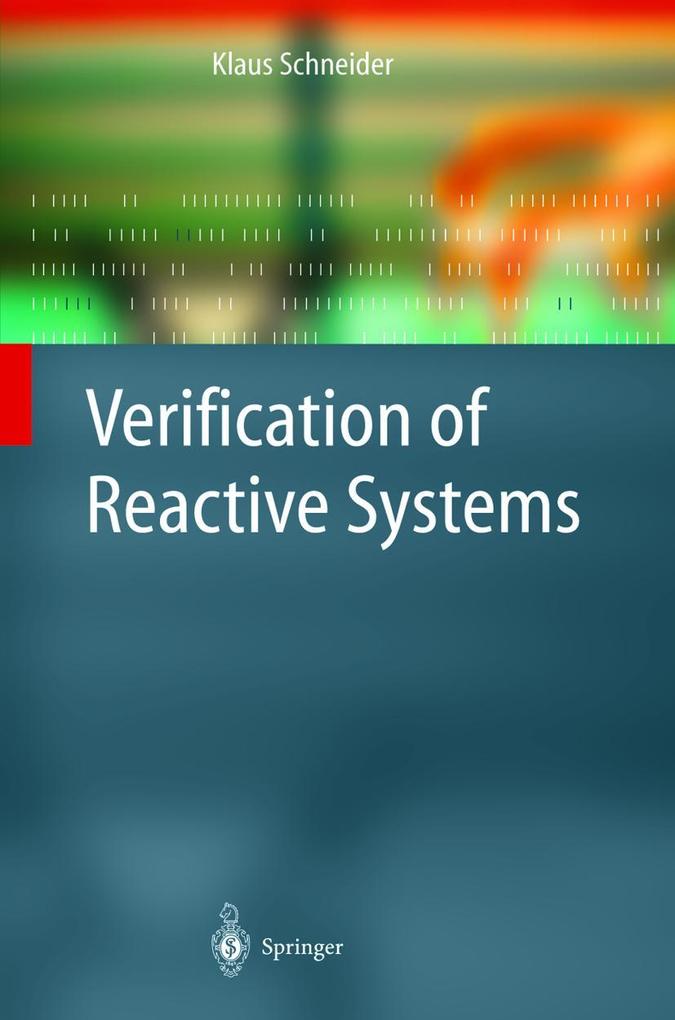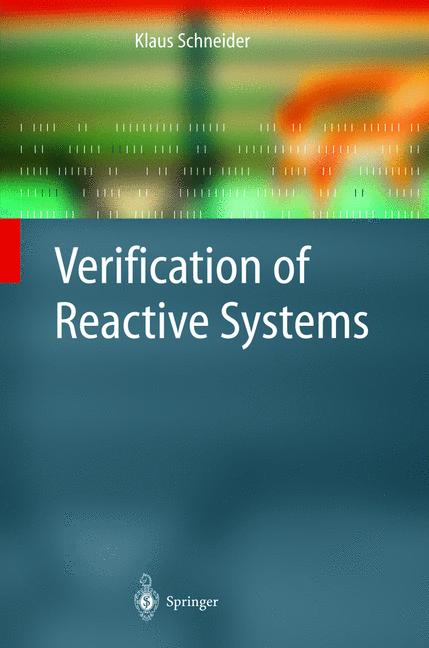
Zustellung: Sa, 31.05. - Mi, 04.06.
Versand in 1-2 Wochen
VersandkostenfreiBestellen & in Filiale abholen:
Reactive systems are becoming more and more important for essentially all areas of technical and professional activities as well as for many areas of everyday life. The design of these systems is a great challenge and requires sound compromises between safety and time-to-market. To meet these needs, early design phases nowadays include verification of given specifications against system descriptions to find potential design errors as early as possible.
This book is devoted to the foundation of the most popular formal methods for the specification and verification of reactive systems. In particular, the µ-calculus, omega-automata, and temporal logics are covered in full detail; their relationship and state-of-the-art verification procedures based on these formal approaches are presented. Furthermore, the advantages and disadvantages of the formalisms from particular points of view are analyzed. Most results are given with detailed proofs, so that the presentation is almost self-contained.
This book is targeted to advanced students, lecturers and researchers in the area of formal methods.
Inhaltsverzeichnis
1 Introduction. - 2 A Unified Specification Language. - 3 Fixpoint Calculi. - 4 Finite Automata. - 5 Temporal Logics. - 6 Predicate Logic. - 7 Conclusions. - A Binary Decision Diagrams. - A. 1 Basic Definitions. - A. 2 Basic Algorithms on BDDs. - A. 3 Minimization of BDDs Using Care Sets. - A. 4 Computing Successors and Predecessors. - A. 5 Variable Reordering. - A. 6 Final Remarks. - B. 1 A Partial Local Model Checking Procedure. - B. 2 A Complete Local Model Checking Procedure. - C Reduction of Structures. - C. 1 Galois Connections and Simulations. - C. 1. 1 Basic Properties of Galois Connections. - C. 1. 2 Galois Simulation. - C. 2 Abstract Structures and Preservation Results. - C. 3 Optimal and Faithful Abstractions. - C. 4 Data Abstraction. - C. 4. 1 Abstract Interpretation of Structures. - C. 4. 2 Abstract Specifications. - C. 5 Symmetry and Model Checking. - C. 5. 1 Symmetries of Structures. - C. 5. 2 Symmetries in the Specification. - References.
Produktdetails
Erscheinungsdatum
16. Oktober 2003
Sprache
englisch
Auflage
2004
Seitenanzahl
620
Reihe
Texts in Theoretical Computer Science. An EATCS Series
Autor/Autorin
Klaus Schneider
Verlag/Hersteller
Produktart
gebunden
Abbildungen
XIV, 602 p.
Gewicht
1199 g
Größe (L/B/H)
241/160/43 mm
ISBN
9783540002963
Entdecken Sie mehr
Pressestimmen
From the reviews:
" The book starts with an introduction to formal methods in system design, talking about taxonomy and a classification of formal methods and systems. Then the author introduces what he calls a unified specification language, which is propositional µ-calculus based on Kripke structure simulation, bisimulation and also quotient structures and products of Kripke structures. it is a very helpful book that can be used both as a basis for a lecturer and as a handbook for learning about verification issues. " (Manfred Broy, Mathematical Reviews, 2006 d)
" Verification of Reactive Systems deals very much with the fundamental theory of its subject matter, namely automata, temporal logic, and model checking. is focused systematic, and thorough. This makes it very suitable for a graduate course on selected topics on formal methods. It would also be highly useful as a general reference in logic and automata theory . is a remarkable achievement, and fills, in book-form, a glaring gap in the literature. I heartily recommend it to every serious formal methods theoretician. (Joel Ouaknine, Software Testing, Verification and Reliability, Vol. 15 (3), 2005)
" This book is in the series on theoretical computer science. The book classifies systems into transformational systems, interactive systems, and reactive systems. can be kept as a reference for theories on verification of computing systems, especially finite state formalisms. The book is complete with respect to its concepts, and explanations. The research oriented readers can find the book useful . For theory oriented readers, the flow of chapters is smooth. On the whole, the book is well written . " (Maulik A. Dave, SIGACT News, Vol. 37 (4), 2006)
Bewertungen
0 Bewertungen
Es wurden noch keine Bewertungen abgegeben. Schreiben Sie die erste Bewertung zu "Verification of Reactive Systems" und helfen Sie damit anderen bei der Kaufentscheidung.











